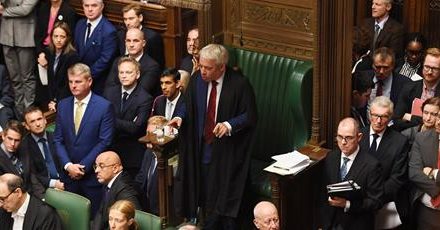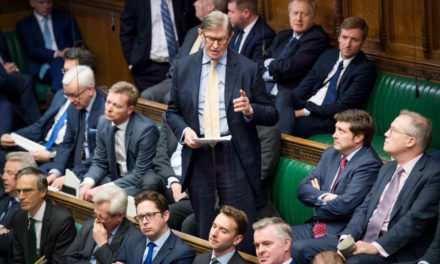COMMENT
The Rwanda Bill’s wording is crucial because it must stand up in court. There’s still work to do
WILLIAM CASH9 December 2023 • 9:00pm
The Government’s “Rwanda Bill” is aimed at stopping illegal migrants making the perilous crossing of the Channel. That is a reasonable and praiseworthy ambition. While this country should always be a place of safety for genuine refugees from persecution, it is essential that we end the people-smuggling trade that is putting an unbearable economic and social strain on our country.
Brexit restored the sovereignty of the United Kingdom’s Parliament. Under our constitutional arrangements, Parliament has the power it needs to make the necessary laws to deter people from crossing the Channel, provided in particular the wording of those sovereign laws is clear and unambiguous.
The Rwanda Bill must be read in the context of the recent Supreme Court judgment in which it was held that the Government’s policy of transferring migrants to Rwanda was unlawful, because there were substantial grounds to believe that they would face the risk of “refoulement”, or being transferred to their country of origin or another third country, from Rwanda.
In the judgment, the Court cited a number of international obligations to which the United Kingdom is party, including the European Convention on Human Rights and the Refugee Convention, as constraining the freedom of the Government to deal with the migrants as it proposed.
The Rwanda Bill is the Government’s response to the Supreme Court judgment and is aimed at disapplying those international arrangements that are frustrating our ability to decide who should and should not enter and remain in our country. The Government has itself admitted that the European Convention and the Human Rights Act do not work for us in this context.
The essential question is whether Parliament has the power to legislate for the disapplication of those arrangements, or whether, some 70 years after we entered into them, we are to continue to be bound by obligations that were suited to the immediate postwar world but are manifestly not suited to the age of internationally organised people-smuggling rackets.
The answer to that question is clear and was famously articulated in the 2002 House of Lords case of R -v- Lyons, in which Lord Hoffman quoted with approval the statement of Lord Rose in the Court of Appeal that “the will of Parliament trumps any international obligation”.
Lord Hoffman explained: “If Parliament has plainly laid down the law, it is the duty of the courts to apply it, whether it would involve the Crown in breach of an international treaty or not.” Hoffman’s statement was endorsed by Lord Reed in the recent Supreme Court judgment, in which he stated: “The principle of legality does not permit a court to disregard an unambiguous expression of Parliament’s intention.” He dismissed a claim of one of the parties, “ASM”, as inconsistent with clear statutory repeal.
In other words, the sovereign United Kingdom Parliament can legislate to override the provisions of international treaties provided it does so in such clear and unambiguous terms that its intention cannot be misunderstood. In such circumstances, the courts will follow the explicit legislation to the letter.
We should be glad that our flexible, unwritten constitution allows us, through Parliament, to take such steps as are necessary to protect our borders at a time when mass illegal migration is proving such a global challenge.
The European Union, in particular, is feeling the heat from its southern borders. Its developing immigration and asylum pact imposes quotas and fines by majority vote, thereby creating fury from some member states. If the post-Brexit British Government is smart, it will avoid the internal acrimony that many EU member states now face and achieve a massive Brexit dividend because we are out of EU jurisdiction.
The Rwanda Bill, if clearly and unambiguously drawn, will ensure that the Government’s policy of removing illegal migrants, so as to deter others, will work and will not be frustrated by spurious, if ingenious, applications to the courts. I chair the European Research Group’s legal panel, informally known as the Star Chamber, which includes external immigration lawyers, and which is currently considering the Rwanda Bill with a view to deciding if its wording is sufficiently watertight to meet the Government’s policy objectives. At present it does not. We will be reporting in full before the Bill is considered on Second Reading this Tuesday.
Our report, I hope, will be helpful to the Government in deciding whether the Bill in its current form is fit for purpose or will require further amendment, even by the Government itself.
I trust that the Government will work respectfully with Parliamentary colleagues on both sides of the “international obligations versus sovereignty” debate to ensure that the final legislation is consistent with the duty of the courts to follow clearly the intentions and express words of Parliament so that the flights to Rwanda will not be aborted when the aircraft are standing on the runway waiting to take off.
The Government fully understands the importance of this issue. It is essential that not only the policy, but its delivery through clear and unambiguous words in the Act, should be a success. Achieving that goal will be hugely welcomed by the people we represent and restore trust.
Bill Cash is MP for Stone



